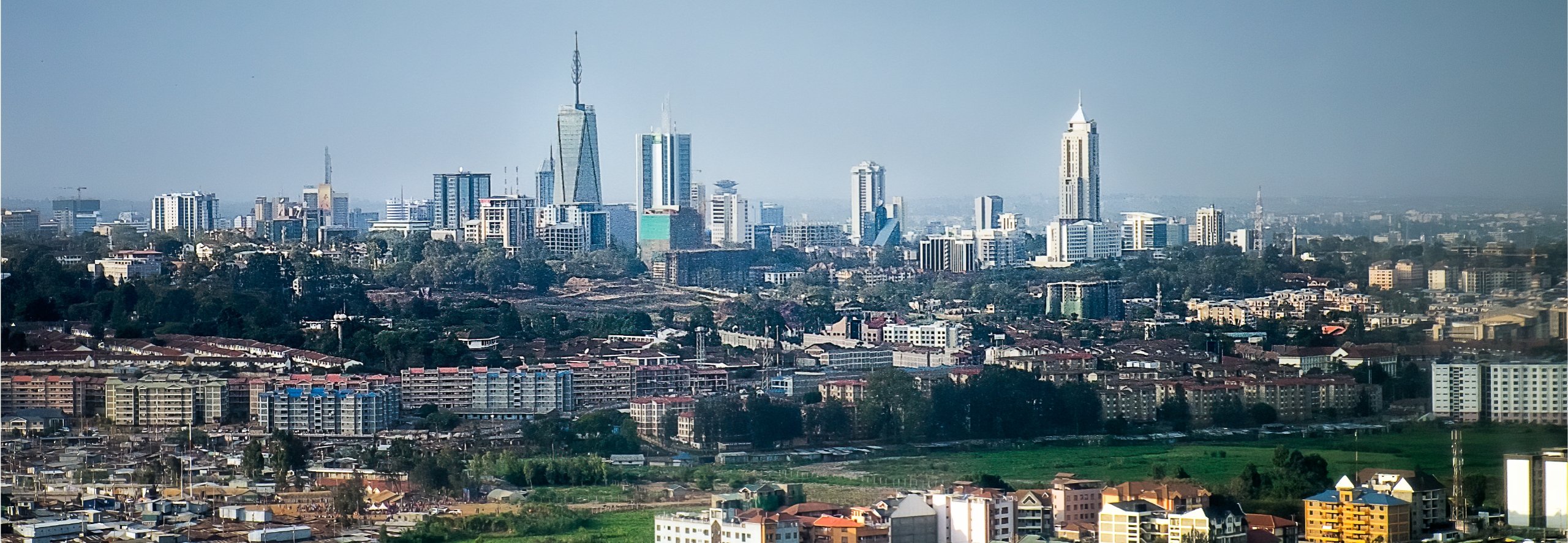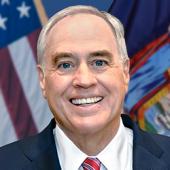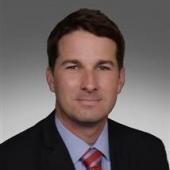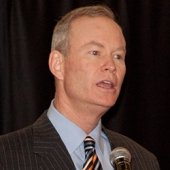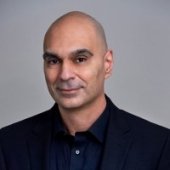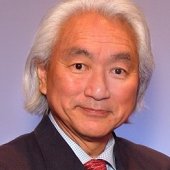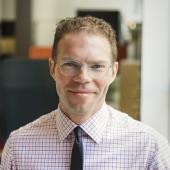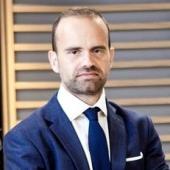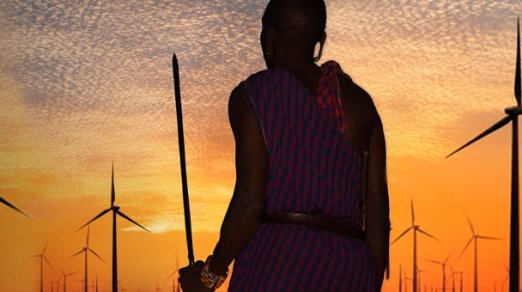CEO panel: Africa’s predicted population boom a boon for urban real estate
IN BRIEF
- A population boom is set to alter the course of the African continent — and the world — in the next 10 to 30 years: By 2050, the continent is expected to be home to nearly a third of all people on earth.
- Real estate opportunities abound — in housing, healthcare, data centers and more — but building the connecting infrastructure will be key. China has taken notice of the opportunity and is pouring billions into Africa’s infrastructure, along with other investments.
- What will underpin success in Africa is education — the next big frontier before Africa becomes a player on the world stage.
Africa just may be the planet’s sleeping giant... at least from a demographic standpoint. Consider that Africa is undergoing, and will continue to undergo for the foreseeable future, a population boom that will alter the course of the continent over the next fifty years. The growth that’s happening in sub-Saharan Africa should make it the second largest region of the world by 2030 when it’s expected to have some 2 billion people, almost double what it is today, according to the United Nations. By 2050, that number is expected to top 3 billion, accounting for nearly a third of all people on Earth. There will be people—lots of people–and they’ll be born into a very different Africa. Advances in medical technologies and infrastructure, although not where they need to be just yet, will only help to accelerate Africa’s emerging market status. To discuss the continent’s opportunities, Joe Kornik, VISION by Protiviti’s Editor-in-Chief, sat down with three real estate CEOs in Africa—Steve Brookes, CEO of Balwin Properties; Bronwyn Knight, CEO and Co-Founder of Grit Real Estate Income Group; and Greg Pearson, CEO of Gateway Real Estate Africa—to discuss the future of the continent, its cities and its people. The panel discussion took place in July 2021.
Kornik: The African economy and real estate market was humming pre-pandemic, particularly in Nigeria, Kenya and South Africa. As we begin to emerge from COVID, where is the market now and how optimistic are you about its future?
Knight: I think people tend to paint Africa with a broad brush but there are 56 countries in Africa, all with different governments and different agendas. So, we need to keep that in mind. What we’ve seen is that different governments behaved differently during COVID, and different sectors and asset classes also have performed differently. With our portfolio we are exposed to 14 African countries and because we are so well diversified, it’s been interesting to see what’s done well and what’s struggled. With all these lockdowns it’s obviously been dismal performance from a hospitality perspective, but as we’re seeing borders reopen, we’re also seeing people eager to get back to travel and tourism, so that’s been encouraging. The other sector that we’ve seen struggle a bit is retail. But again, it’s been very country-specific–we own a very large asset in Casablanca. Morocco, like Europe, went through an exceptionally hard lockdown so it’s still off. But countries like Mozambique, Kenya and Ghana have been extremely resilient. Ghana opened up relatively quickly with a vaccination program, way ahead of any of the other African geographies, so Ghana has done quite well. It varies greatly.
Brookes: Balwin operates exclusively in South Africa, and it’s a really turbulent environment right now. We have three classes of brands: our green brand, which caters to emerging markets; our classic brand, and our high-end signature brand. In this environment, we’ve found that it’s been smart to focus on the green brand and sort of cater to that emerging market segment: the people coming out of the townships that have just gotten jobs and are starting their lifecycle. Our ability to be nimble and adapt quickly to market conditions has been a big key for us during this time. I also have a passion for green development, and we’re about to explode with a whole bunch of new green initiatives. We’re finding an incredible amount of good will, especially on the financial side where we’re finding we can borrow more money than we need. That’s a very good thing in a developing country like South Africa. We have tremendous confidence in South Africa, but it’s never going to be easy. Infrastructure remains a big challenge all across the country, but the market is there. Residential real estate and demand for our portfolio is strong, specifically in South Africa’s metropolitan areas of Pretoria, Johannesburg, Cape Town and Durban.
Pearson: Outside of South Africa, real estate was one of the first things that was negatively affected by the pandemic, and as Bronwyn [Knight] mentioned, retail was hit especially hard. Fortunately, we found that because of the track record we had across the continent, a lot of the multinational companies that had been trying to do things on their own came to us for expertise. So, we found that we had more development opportunities than we had previously, especially global firms looking for solutions across the continent. Part of our market is in data center development and there was so much demand for data and connectivity as people were trying to work from home during the pandemic. In places like Nigeria, where you’ve got close to 200 million people, the existing infrastructure of the country just couldn’t handle it. We’ve rolled out data centers in Nigeria and Kenya and are looking at Ghana. Another big part of our business has been focused on consolidating American embassies, which wanted to centralize during COVID. We’ve landed five of our biggest embassy contracts over the last 24 months. And then the last one, probably not surprisingly, is medical. Africa has always lacked good medical facilities outside of South Africa, and maybe Egypt and Morocco. We partnered with the Indian-based medical group Artemis, and together we have built hospitals and facilities across the continent. So, if you’re still looking at real estate as “buy a piece of land, build a building and get tenants,” well, that market is gone, at least for now. It will probably come back in two years or so, but we’re focused on creating real estate solutions across Africa. And in the last 24 months we’ve almost doubled the size of our development business.
We have tremendous confidence in South Africa, but it’s never going to be easy. Infrastructure remains a big challenge all across the country, but the market is there.
– Steve Brooks, CEO, Balwin Properties
More than half of the projected increase in the global population up to 2050 will be concentrated in just nine countries: the Democratic Republic of the Congo, Egypt, Ethiopia, India, Indonesia, Nigeria, Pakistan, the United Republic of Tanzania, and the United States of America.
Source: World Population Prospects 2019, United Nations Department of Economic and Social Affairs.
Kornik: That’s interesting, Greg. It sounds like all of you have sort of been forced to pivot your portfolio, or at least your strategy since the start of the pandemic. How has COVID impacted your business and its future?
Knight: Diversification is key. Our approach is that we don’t want to be more than 25% exposed to any one geography. We have exposure all over Africa, and we’re actually working with Greg on both the American embassies and medical facilities projects across Africa. When American embassies come to us, being in 14 countries makes us more viable. Same goes for healthcare: We are building facilities and like Greg said, the idea is to roll those out across Africa. The pandemic has made clear Africa’s lack of healthcare facilities, and governments across the continent are looking to us to bring in partners, like Artemis, to help develop those facilities.
Brookes: There are a couple of things that are absolutely critical to success as I look to the future; fundamentals that we need to get right. One is infrastructure. I am fanatical about infrastructure. I believe if we have the infrastructure, people will come. Infrastructure is critical for South Africa. We have backbone infrastructure in what we call our four nodes: Johannesburg; Pretoria; the Western Cape, which, in my opinion, is the most beautiful place in the world; and Durban, where we are exploding–we have about 12,000 apartments under construction. There are other nodes, but in those other places the infrastructure is a massive problem. Second is urban and community planning where we, as developers, really get to exert our influence into the community to help make an impact. That’s critical to our future success. And finally, the last thing that’s critical for us is lifestyle. I mentioned Durban; that’s a lifestyle place. And we’re really focused on lifestyle in our designs. For instance, we develop properties around lagoons so residents can have a place for watersports, or just a place to walk in the evenings surrounded by nature. That’s what we’re trying to create with our residential properties; that’s where the future is going; so that’s where we’re going.
Pearson: So just to add on to what Steve is saying… one of the big opportunities that we see on the continent is residential real estate, and Steve’s right when he says we need infrastructure investments, not just in South Africa but everywhere. And we need them both in and around cities. One trend that I think is going to be big is this idea of new “suburban cities” being created on the outskirts of larger cities. There are a lot of developments where you will drive along a dirty, bumpy road to get to something of significance, so there’s this gap between the city and the real estate development. We’re finding that it’s worthwhile for us to invest in the infrastructure in between; we’re bringing water to the area; we’re bringing data and communications; we’re bringing power in through green resources and upgrading local energy systems. And once that infrastructure goes in it’s crazy how quickly everything else follows. A perfect example is in Kenya where you’ve got 2,500 families now living on the outskirts of Nairobi, which was considered a long way out two years ago but not anymore. These developments on the outskirts of cities look and feel like cities; there’s new office buildings going up, there’s public parks, there’s schools being built. In the end, we’re creating these suburbs, and we see this as a big market opportunity right now and into the future.
Kornik: So, my last question is around the demographics and potential of Africa. The population boom that’s happening in sub-Saharan Africa will make it the second largest region of the world in a decade. Talk to me about Africa, its growth and its cities in 2030 and beyond.
Knight: I think we can confidently say that Africa is the last frontier of growth because of coming population growth. There are so few opportunities for growth left across developed markets that investment has to come to Africa, and we see ourselves as a gateway into the continent. We see huge opportunities in Morocco, Kenya and Ghana, for instance. In these places, we have good relationships and good partners. If you look at our portfolio today, it includes Exxon and Halliburton, companies that are very resilient to emerging markets. The middle market is growing and will continue to grow, and the need for both retail and residential product is strong because of this up-and-coming, highly educated population emerging in Africa. That’s really where I see the opportunity going in the years to come. We sit with a portfolio that’s just under R900 billion (South African Rand); can we triple this in the next couple of years? Absolutely. And it’s by no means coming from just the growth on the continent; it must come from outside Africa. And I don’t think, even in my lifetime, that I’ll touch the tip of the iceberg of opportunity in Africa.
Brookes: Bronwyn’s a hard act to act to follow, and I agree with everything she just said. But there’s one fundamental point that we haven’t discussed and that’s the idea of education. I believe Africa needs massive education reform. You drive past our schools and the sports fields are unusable, the grass is a meter high. I think we all understand education is not just about reading books; it’s about so much more of the complete experience. And when I see the lack of investment… I mean, are you kidding me? I think we have a long way to go; the level of education in Africa compared to other continents is extremely low. If we want to compete on the world stage, to me, that’s the next big frontier for Africa.
Pearson: I agree with Steve that education will be paramount. To look at it a little bit differently, I think we need more industrialists in Africa. That’s going to create the long-term opportunity. We need people to come in and change the way that we look at Africa with regards to GDP. If you look at the logistics across our continent, it’s almost non-existent. To get product we need in Ethiopia, sometimes it takes us as much as three months to ship it from South Africa because there is little to no rail and the road infrastructure is so bad. I think one point to be considered is the influence that China is having on Africa. Many people are not happy about it because they are taking a lot of our resources out of Africa, but they’re also providing a lot of infrastructure. Ports, rails and roads are being built because of the Chinese. They are one of the only foreign investors that we have here in Africa, and they are putting billions into infrastructure we all need for our businesses to succeed across the continent. Our long-term future and prospects are great, but we need that outside investment to keep coming into the continent. If that happens, as Bronwyn alluded, I think there’s too much opportunity in Africa for all three of us to realize in our lifetimes.
I believe Africa needs massive education reform. I think we have a long way to go; the level of education in Africa compared to other continents is extremely low. If we want to compete on the world stage, to me, that’s the next big frontier for Africa.
– Steve Brooks, CEO, Balwin Properties
Bronwyn Knight is CEO and co-founder of Mauritius-based Grit Real Estate Income Group, the largest pan-African-focused real estate group with a primary listing on the main market of the London Stock Exchange. Knight has substantial corporate finance and deal making experience. As co-founder and non-executive director of Grit she played a significant role in the listing and conversion of the Group to its current pan-African focus, underpinned by dollar-based leases. She assumed the executive leadership position in May 2016, and under her leadership, Grit grew from a portfolio of two assets valued at US $140 million in 2014 to 54 investments and assets totaling US $850 million.
Steve Brookes is CEO and founder of Balwin Properties Limited in Johannesburg, South Africa, a specialist, niche, national large-scale, residential property developer focused on the development and sale of sectional-title apartments as well as surrounding infrastructure in the mid to upper market segment. Brookes is also the chairman of the Balwin Foundation, a nonprofit company established in 2016 by Balwin Properties and aimed at making a social difference in the education, training and funding landscape. Brookes is also passionate about environmentally responsible building practices and is the driving force behind Balwin’s approach to minimizing its environmental impact by achieving green building ratings at its developments.
Greg Pearson is CEO of Mauritius-based Gateway Real Estate Africa, founded in 2018 to take advantage of the need for bespoke corporate accommodation on the African continent outside of South Africa. Prior to GREA, he co-founded Grit Real Estate Income Group and has been instrumental in sustaining its rapid growth since inception in 2014. Greg’s expertise includes development management, cost planning, procurement, time management and traditional project management of major engineering and building projects. He has successfully completed a series of developments across the office, retail, leisure, education and healthcare sectors and has experience in over 40 African countries.
Did you enjoy this content? For more like this, subscribe to the VISION by Protiviti newsletter.




